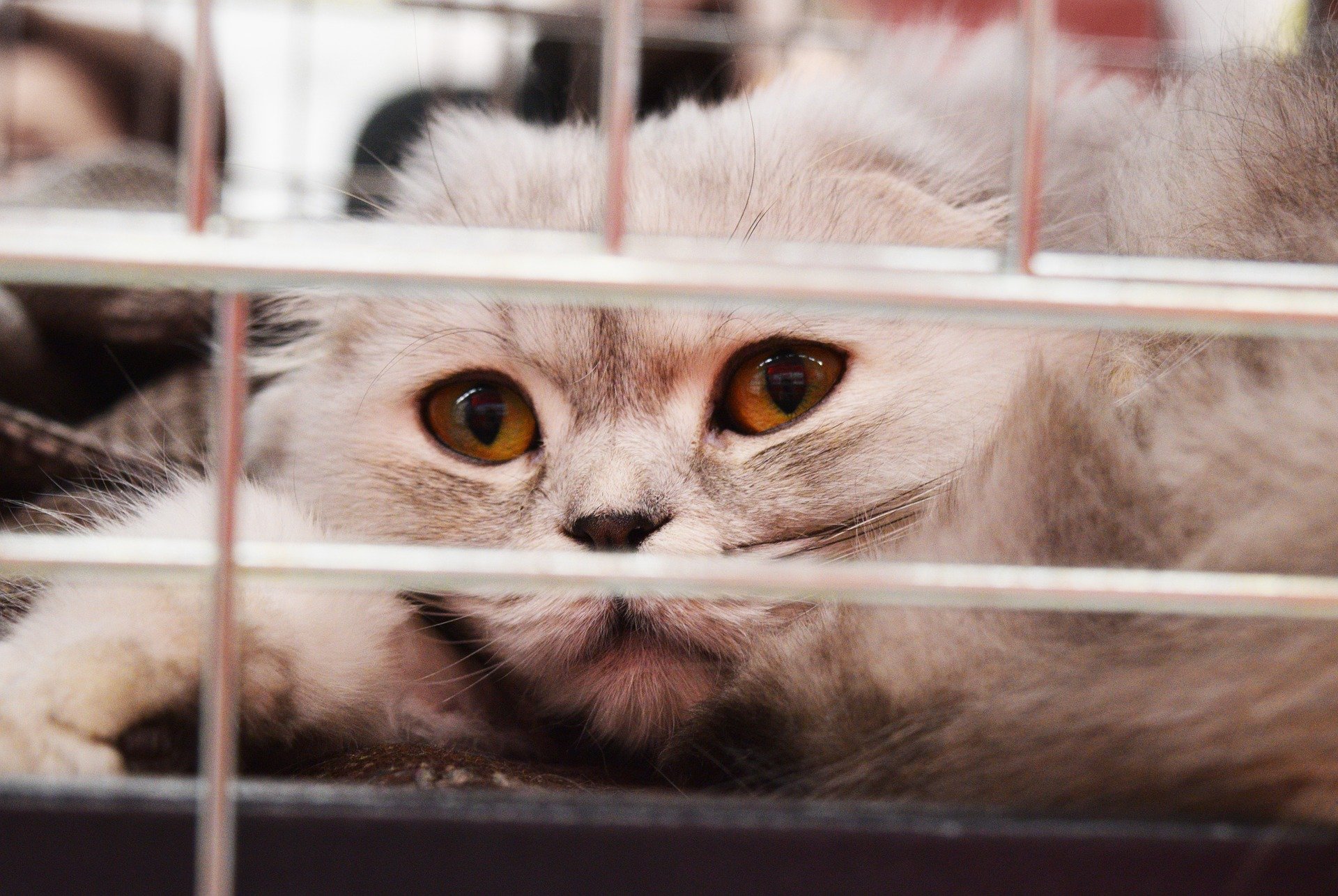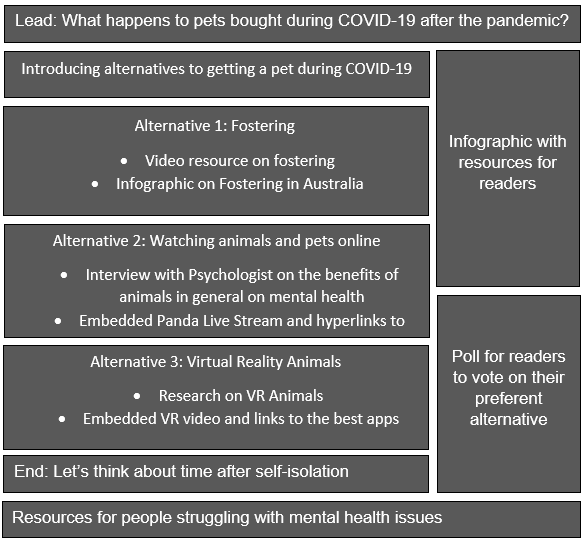
With the advent of COVID-19 and the continuing self-isolation to contain the spread, mental health issues have become a widely discussed topic in the media and with it the benefits of animals and pets for people’s mental health. The heightened interest has led to worries for shelters and breeders about the impact of COVID-19 as they see more and more people considering a pet. The general argument: time and companionship. However, what happens to these animals after the pandemic?

A Feature Story for ABC News
ABC News has been reporting on the impact of the pandemic on animals since the start of the outbreak addressing fears on animals as transmitters, animal health, benefits of pets on mental health, and recently on the heightened interest in pets. Therefore, this article would seamlessly fit in and expand previous coverage on the topic.
As the publication has been reporting on animal welfare as well as the mental health aspect of pets, it has established a target audience interested in pets as well as other animals and are impacted by the self-isolation within Australia.
Relevance and Timeliness
Focusing on the issue of animal welfare during the COVID-19 outbreak from a different angle, I am interested in exploring the benefits of animals on people’s mental health without getting a new pet. As self-isolation measures are extended and the outlook for the end of the pandemic moves into the future, more people seem to consider getting pets, however, pets are a lifelong commitment and not a mental health solution. Therefore, this article will give three new options to Australians lonely in quarantine as new resources to cope with mental health issues at home.
Structure of the Article and Multimedia Use
Multimedia and other Resources
- Infographic on Fostering in Australia
- Video by The Kitten Lady: “You Should STAY HOME and FOSTER KITTENS!“
- Video live streams (Panda Cam, Zoo Footage, Betty the Weather Cat, etc.)
- Video Tweet demonstrating VR animals and article on VR technology
- Infographic with resources for readers on the site as a sum up
- Poll on the preferred alternative of users
- Hyperlinks to research and additional sources (RSPCA, psychological studies, VR Animal apps, research on animals videos for mental health, etc.)
- Interview tips from a psychologist (Professor Caroline Hunt or Professor Philip Boyce)
- Information field at the end of the article with resources for mental health issues and helplines





Hello Vanessa!
I really like your idea and I’m looking forward to reading your story! We’ve been seeing cutie pets becoming popular online these years and this has led to a boom in the pet market, causing serious problems such as pets being abandoned by people who were not ready to have them, the proliferation of stray animals destroying the environment and spreading the virus, unregulated farms abusing pets and etc. The issue you are talking about is the predicable problem we will face in the future if we don’t try to stop it now. I really appreciate the idea to not just telling people how bad it will be if people flock to buying pets, but also providing alternative solutions to solve their loneliness.
This feature should be interesting and entertaining in order to attract audiences so I also really like your idea of using votes, social media and videos to get people engaged. Readers are more likely to take the advice if they are pleased by the enjoyable solutions you present!
Additionally, I think it would be really nice if you could also present some data such as the number of pets being abandoned every year, the environmental and financial damage stray animals caused, the number of unregulated farms in relation to the increasing demand for pets, etc. I think such data can help to make your article even more convincing to the audiences.
Looking forward to your story!